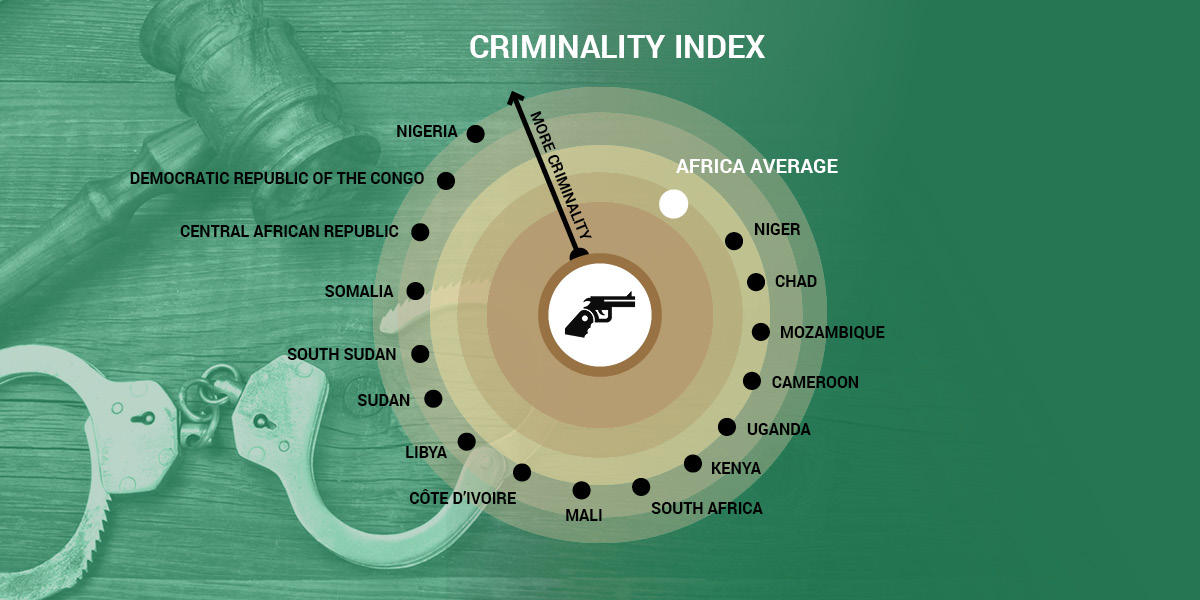However, the immediate effect seems to be that the social distancing and lockdown measures that have been introduced to contain the COVID-19 pandemic has reduced opportunities for crime. This has resulted in world-wide reduction in crime rates. In countries like South Africa the social lockdown measures has resulted in a reduction of some categories of crime like murder and theft, but there has been a sharp increase in crimes related to gender-based violence and violence against young people.
INTERPOL has warned that criminals will exploit this crisis by exploiting the fears and uncertainty surrounding the virus, and they have specifically noted an increase in counterfeit medical products, fraud and cybercrime with the WHO and UN warning of criminal scams. Another risk is that criminal organizations will start hoarding and controlling critical supplies or goods in shortage, such as medical or cleaning supplies, and selling them at hiked-up prices.
COVID-19 is also likely to have an impact on how law enforcement agencies are deployed. Resources may be re-allocated to help enforce new containment measures, especially in high-density areas, but this also means gaps/loopholes for existing crime syndicates to adapt. In some countries like Ethiopia and Liberia, Governments have resorted to declaring a state of emergency, and the failure to comply with containment and lockdown measures has been made a criminal offence. Some people have already been arrested or fined for these kinds of COVID-19 containment related offenses.
In order to help enforce COVID-19 containment measures, and to assist with emergency relief, many African countries have deployed their military forces. For the most part these deployments have been welcomed by the citizens , and it has made a positive contribution to containing the spread of the virus.. However, in some cases the use of military forces to help contain this public health emergency has created political and socio-economic challenges.
For example, elements of the South African National Defence Force have been deployed to support the police to enforce the lockdown. Almost immediately reports emerged of strong-arm tactics and the abuse of civilian rights Similarly, reports of “excessive use of force” by the police and security forces have also emerged in Kenya and Uganda.
C19ConflictMonitor: An increase in #COVID19 related crime will place further demands on the police and criminal-justice system and could lead to a further securitization of the COVID-19 response.
Tweet
The most important factor that will determine how people are likely to respond to the measures introduced by Governments to contain the virus is the degree of trust that citizens have towards their State. One can assume that employing the military to help contain COVID-19 is likely to be welcomed in countries where there is high public trust in the defense force The reverse may be true in countries where there are low levels of public trust , which may have an adverse effect on the willingness of citizens to voluntarily comply with measures to contain the virus.
Countries and societies that were already experiencing social unrest and violent conflict prior to the outbreak of the virus are the most likely to experience COVID-19 related unrest and conflict. In these countries the military and security agencies are more likely to be politicised and to be associated with one of the parties to the conflict. Violent extremists, rebels and other armed groups are also more likely to make use of the disruptions caused by the pandemic to plan and undertake attacks.
An increase in crime can exacerbate existing tensions, break down social cohesion and public trust, and lead people taking the law into their own hands or to social unrest. This in turn will place further demands on the police and criminal-justice systems leading to increased securitization of COVID-19 responses.

